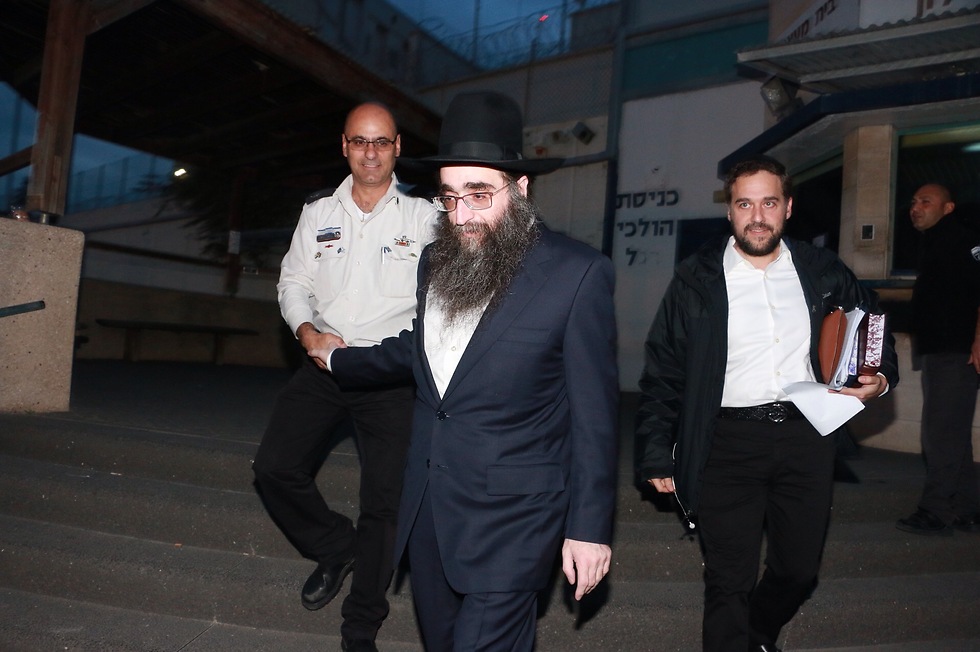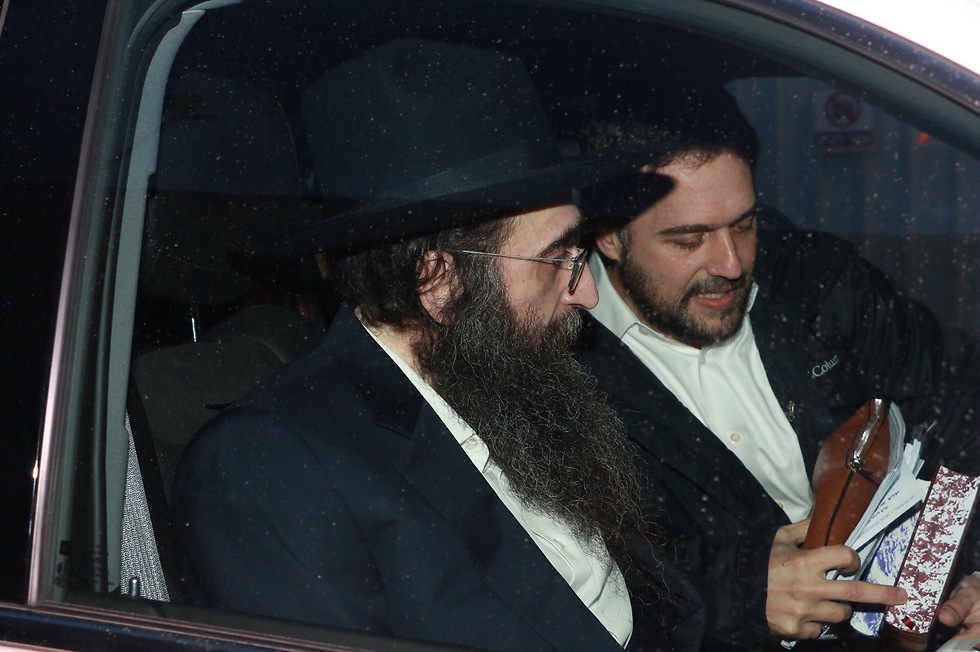Pinto served his sentence in the Nitzan Prison medical center and his behavior throughout his sentence was considered good and he didn't incur a disciplinary infraction.
Pinto began serving his sentence in February after pleading guilty as part of a plea bargain.
The Lod District Court had previously accepted the prosecution's appeal against early release and did not grant the parole board's recommendation to deduct a third of Pinto's sentence. After serving two thirds of his sentence, Pinto applied for early release again and the board granted it based on the condition that he undergo therapy and house arrest.
The parole board noted that Pinto committed to continue therapy beyond the mandated sentence. "I feel like a criminal," said Pinto in a meeting with the parole board. "Several people left religion because they saw a rabbi give a bribe. I live in constant fear. I retired from public life and I am not a rabbi until I feel that I am worthy and that definitely won't happen in the next year or two. I was serious when I said I made a mistake."
In the prosecution's petition, they argued that the parole board erred when they determined that Pinto met the requirements for early release despite the serious circumstances of his offense, his attitude toward the crimes, the potential danger in his early release and additional classified information the prosecution was privy to.
The Israel Police joined the prosecution's assessment that the parole board did not properly consider the information presented and they still considered Pinto a future danger.



















